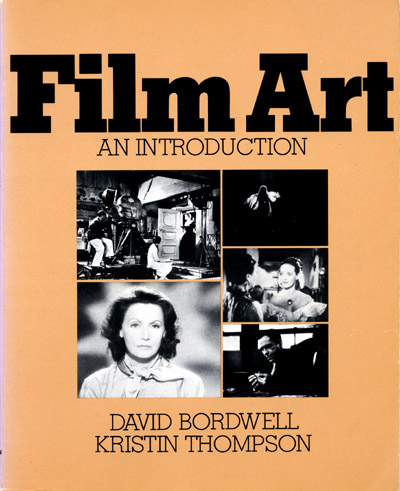PART ONE: FILM STUDIES IS NOT EASY (BUT PEOPLE WILL TELL YOU IT IS)

A lot of people make the fateful mistake of deciding to study Film because they think it will be easy. This is because most people do not associate films with anything other than something to do on a Friday night when it's raining and there's nothing on TV. In life, watching a film is the easy way out; the easy way out of boredom, the easy way out of having to interact with people, even the easy way out of reading, like they used to do in the good old days. Watching films is considered by many to be a lazy, modern entertainment option, rather like the internet or game consoles; this in spite of the fact that film, and film as entertainment, has been around in some form since the 1890s.
Hence, the idea of studying film as an art form in itself is completely alien to a lot of people, especially considering that it has only begun to be studied in earnest comparatively recently. Many colleges and universities still don't carry a Film Studies course, or lump it into an already existing department under the banner of 'English', or 'Media'. Upon announcing my intention to study Film, I experienced much disdain, especially from members of older generations who had not grown up with it as an available and legitimate subject for them to study themselves. I found myself greeted with the phrase 'Oh! Well, I'm sure that will be very interesting,' or 'I'm sure you'll enjoy that,' or 'Well, that's what it's all about these days isn't it. You'll be able to get a decent job somewhere.'
When you are confronted with comments such as this, you have two choices; either you can grit your teeth and smile politely, thereby avoiding any awkwardness or argument, and perpetuating the idea that all Film Studies students are lazy entertainment seeking clowns. Or, if you believe, like I do, that we have a right to be considered egotistical arrogant weirdos like every other legitimate art student, then you can use the points I will present you with in this series to blow those patronising bastards out of the water.

To start us off - to quote, as near as I can remember, my A-Level Film Studies Teacher: 'Film is the most important art form there is.' And she was right, as she usually was. Almost from its earliest inception, film has proved itself to be the ultimate art form. This is because it encompasses all other art forms; writing, drawing, painting, photography, theatre, music - the list goes on and on. When you study Film, it isn't just film that you study. You need to look at photographs, paintings, sculpture, architecture; you need to read book upon book - and not to mention you need to have seen at least about five times as many films as the average person, and have actually paid attention during them. Not looking so undemanding now, is it?
Not only that, probably the most important conjunctive subject you need to have more than a basic grasp of to get ahead in Film Studies, even more important than English, is History. Knowing what was happening when and in which country when a certain film was made by a certain director has saved my ass in an exam more times than I would care to recall. It really makes you sound like you know what you're talking about - I can remember once babbling on about Pedro Almodovar in connection with Franco's rule of Spain; the examiner ate it right up. But, in all seriousness, there is barely a film out there that is not influenced by historical happenings, all the way from factual heavyweights like Schindler's List down to piss-taking fantasies like the Indiana Jones films. I challenge you to think of any film that cannot be linked, however tenously, to historical fact. So buy yourself some more books and fork out for the history channel, or I guarantee that you will very quickly find yourself up shit creek. And while you're at it, explain to the fuckwits who try to tell you that Film Studies is simply a vacuous entertainment quest why films like Schindler's List need to be studied.

This post is running on a bit, so I'll round it off with one final point: I once had a conversation with someone who, upon learning that I was studying Film, began voicing the opinion that Directors have the world's easiest job (anyone not very familiar with the subject of Film will immediately assume that you want to be a Director, it's just one of those things). Anyone who has ever tried to make their own film, or even just anyone who has watched a behind the scenes documentary, knows different. Making films involves problem upon problem, and then more problems that are caused by the solutions to the other problems. I wouldn't wish being a Director on my worst enemy. It's incomprehensible to me that there are people out there who think that a director actually does just sit in a folding chair with their name on the back, wearing stupid trousers and yelling orders through a megaphone. Directors have the hardest job in the film industry; not only do they have to know how to do their own job, but they have to know how to do everybody else's as well. That's what being a Director is. Studying Film (and creating it) is not easy, it's not insignificant, and it's not childish; what it is is worthwhile.

I`m eagerly awaiting Part Two, Harri.
ReplyDelete